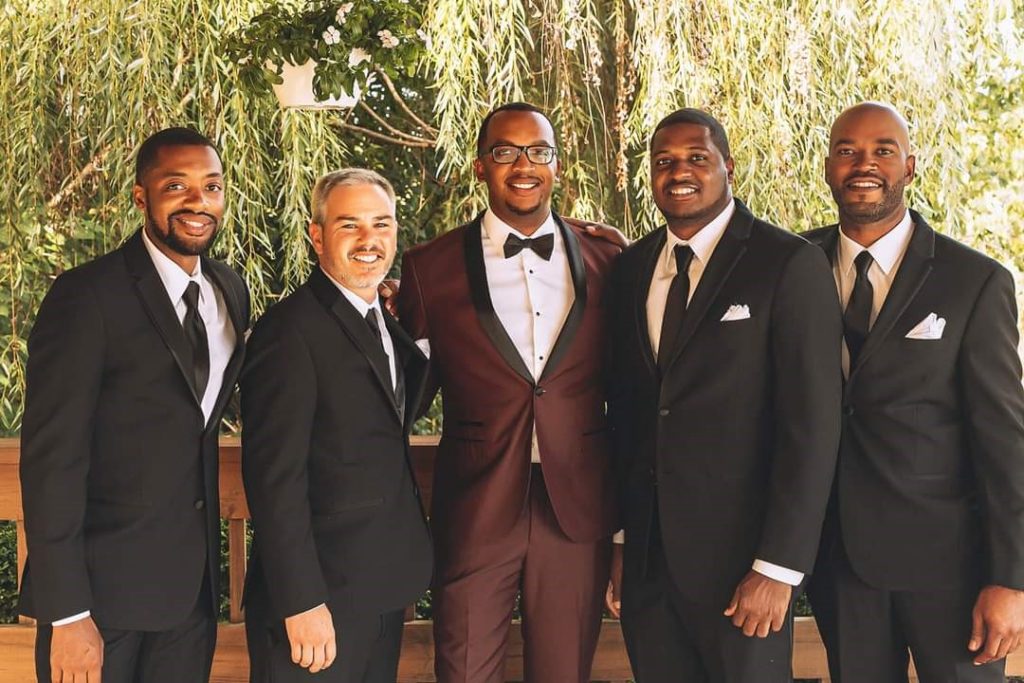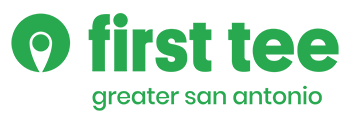Sixteen-year-old First Tee – Lake County (Hammond, Ind.) participant, Steven Outlaw, was notified during the 2001 First Tee Network Summit, the annual gathering of those within the First Tee network, that he was going to have to make his speech earlier than originally scheduled. The events to follow happened in a way that only fate decides.
Steven describes it as “being in the right place at the right time.” Using one of the first skills instilled into First Tee participants, as well as taught within his own household, on how to properly introduce yourself to others, Steven walked right up to one of the other speakers of the evening, former president of Georgetown College, Dr. William Crouch, and shook his hand. Steven’s demeanor stood out to Dr. Crouch and gave him quite the idea.
Following Steven’s speech, Dr. Crouch scrapped his own prepared comments and surprised Steven with a full scholarship to Georgetown College and news that he planned to provide a full scholarship to First Tee participants every year following. This full-ride scholarship would alleviate the financial burden of furthering Steven’s education.
Bob Krause, former vice president of institutional advancement at Kansas State University, followed suit with Dr. Crouch’s pledge. The First Tee Scholars Program was born and set to begin by 2003 with the inaugural class of Scholars, many of whom Steven is still in touch with today.

L to R: Christopher Hawkins, First Tee – Metro Atlanta alumnus and First Tee Scholar Class of 2003; Adam Ruegg, Troon Golf; Steven Outlaw, First Tee – Lake County alumnus and inaugural First Tee Scholar; Rod Jackson, First Tee – Metro Atlanta alumnus; Brandon White, current Program Director First Tee – Lake County.
As the inaugural First Tee Scholar, Steven graduated from Georgetown College with a degree in political science. After college, he enrolled in the PGA, PGM Accelerated Program. After completing two levels of the program, he secured an internship with Troon Golf, a leading golf management company. He has since worked with Troon Golf for nearly 15 years, starting in Arizona and traveling overseas to work in the Middle East, and in Malaysia managing The Els Club Teluk Datai (rated #83 in the world by Golf Digest in 2016).
More recently, Steven serves as the PGA Director of Golf at Wickenburg Ranch Golf & Social Club, managed by Troon Golf. Steven has been a PGA Class A Professional for more than 10 years and currently serves on the Southwest Section PGA Board of Directors and is very active with Troon’s D&I Council. Going forward, Steven aspires to ascend the ranks in the PGA of America, with a passion specifically around diversity, equity and inclusion and positive change within the game of golf.
Though Steven had numerous amazing opportunities during his time as a First Tee participant, he now prides himself in exploring what he can do for First Tee as an adult. He works closely with First Tee – Lake County, often supplying the chapter with donations.
“These opportunities would not have been possible without First Tee and the core values instilled in me such as perseverance and confidence. Much of what I learned during my time with First Tee I use now to strengthen and empower my team. I am forever grateful and honored to be part of such a great organization. I look forward to the future of First Tee and the path they will pave for the next generation.”
Eleven years after Steven’s speech, the First Tee Scholars Program continues to thrive. It has since received a face-lift following Greg McLaughlin being named First Tee CEO in 2019.
Relaunching officially in 2020, President George W. Bush, honorary First Tee chair, congratulated the first class of the revamped program. First Tee College Scholarship Program now extends its impact to alumni beyond financial support, providing personal and professional development throughout their post-graduate careers.
Each of the Scholars is paired with a dedicated, trained adult mentor who helps encourage and guide them throughout the college experience, including virtual and in-person meetups. The program also provides professional development workshops held in-person throughout the year, and up to $5,000 per year toward tuition.
“First Tee aims to inspire and empower every young person in the program to set goals and begin pursuing them,” said McLaughlin. “The First Tee College Scholarship Program is intended to motivate young people to stay in the program and support alumni as they matriculate through the college.”
In recognition of First Tee’s 25th anniversary, the Class of 2022 includes 25 First Tee Scholars. This time, Steven Outlaw has turned the tables, joining as a mentor to one of the Scholars.
“I was extremely fortunate to be surrounded by great professionals as I progressed through my time with the First Tee. These individuals helped me grow not only in golf, but personally and professionally. I consider myself lucky to be able to return the favor to the next generation!”
We believe in helping youth succeed – on the golf course and in life. Learn more about our programs and how you can get involved.

